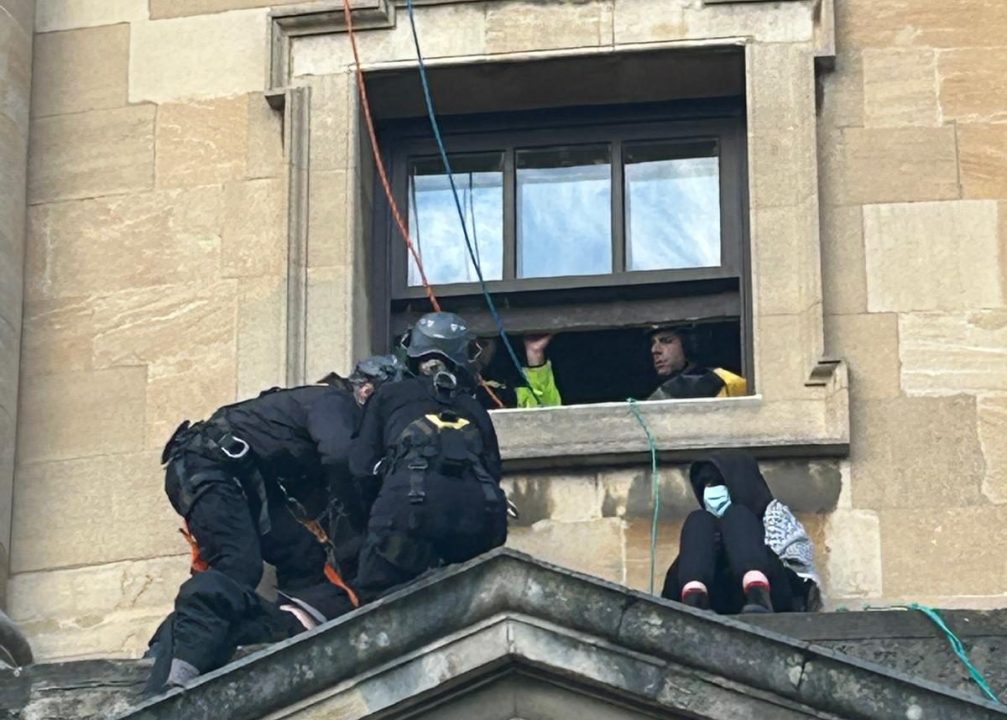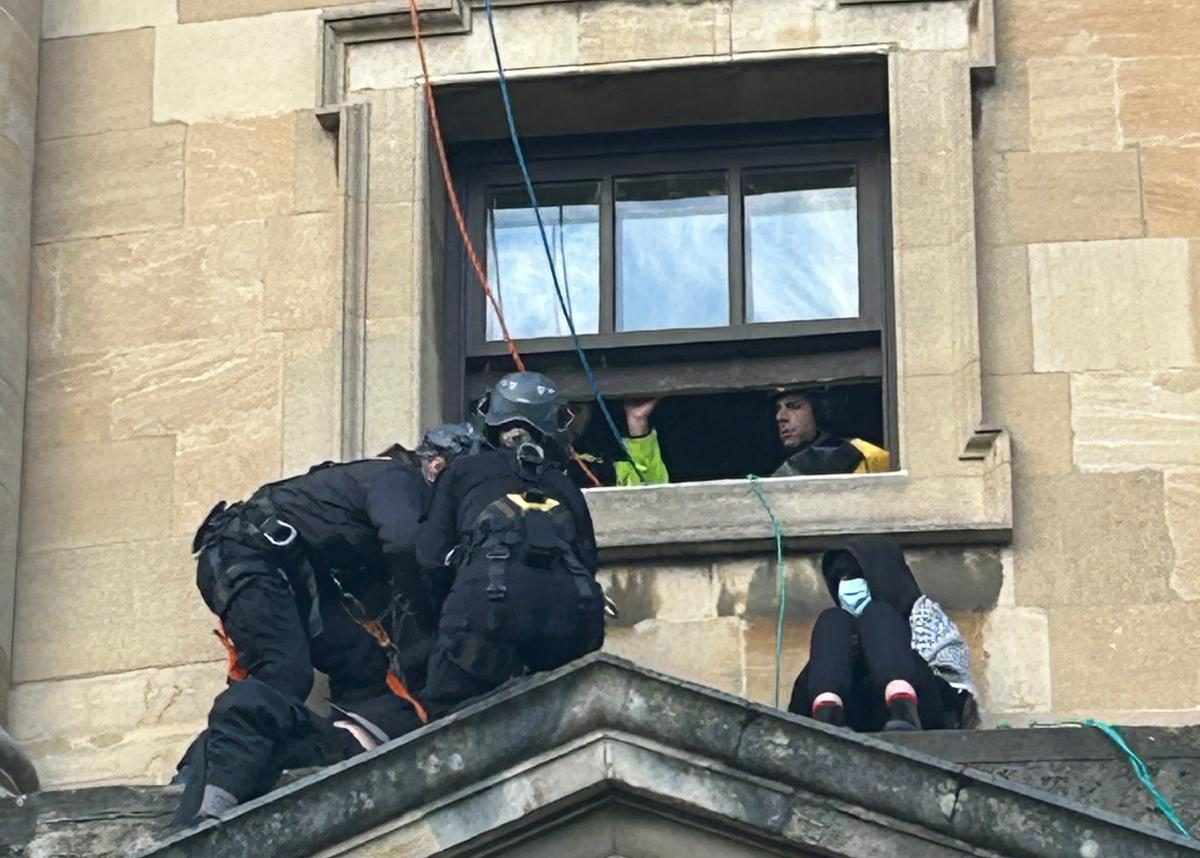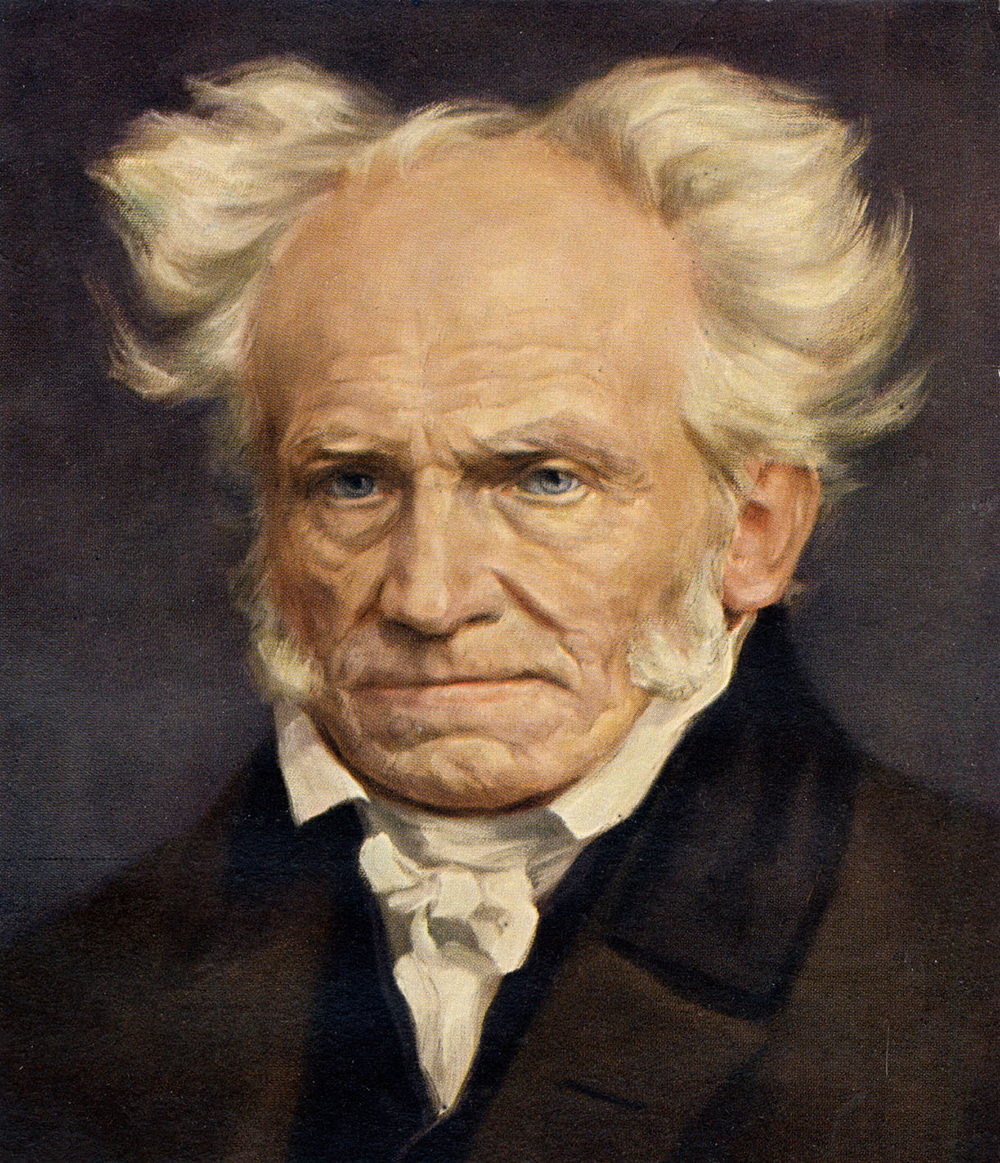The ceasefire in Gaza may be holding, but student activists aren’t happy. Yesterday, ten students from the Oxford Action for Palestine (OA4P) protest group stormed the Radcliffe Camera, the eighteenth century library, ‘occupied’ it and founded the ‘Khalida Jarrar Library’ named after a Palestinian activist and one of the 90 freed as part of the ceasefire deal between Hamas and Israel. The rationale, one member told me, was that the building was the centre and ‘heart’ of the city, would ‘make it Palestinian’ and would ‘attract the most attention’.
The university, having tried to talk with the group, had by lunchtime told them that it was over to the police
Just as the students took over the building, the protesters delivered a press release to The Oxford Student which explained why they could not accept ‘business as usual’. The ‘absolute brutality of the Zionist settler project’ has been aided by the ‘technologies developed by Oxford University’, and arms giants have given the university ‘tens of millions of pounds’ for research. The university had conducted dialogue with the protest group in ‘bad faith’ and ‘escalation has become necessary after the University ceased contact with OA4P negotiators’, ‘platform[ed] Zionist genocidal apologia’ and has been ‘blatantly inactive’.
They did manage to draw a large crowd of onlookers, and the chants this time were new. Instead of ‘from the river to the sea, Palestine will be free’, it was: ‘One, two, three, four, occupation no more. Five, six, seven, eight, Israel is a terror state’; ‘Irene Tracy [the Vice Chancellor], you can’t hide. We charge you with genocide’; ‘Yemen, Yemen, make us proud, turn another ship around’ (Are they actually calling for shelling shipping?). Theodora, a passing third-year student, said woundingly, ‘they have no sense of rhythm’.
Some protestors could be seen sitting down and taking smoke breaks outside the Bodleian where they handed out bottled water and pasties to their supporters. One clambered out of a window in the Radcliffe Camera and onto a small ledge, shouting through a megaphone:
- ‘Disclose University-wide assets’
- ‘Divest University-wide assets’
- ‘Overhaul investment policy’
- ‘Boycott institutional relations’
- ‘Drop Barclays’ (which has, in the past, had its windows smashed)
- ‘Rebuild and reinvest’ (in Palestine, presumably)
Interestingly, the protestors had organised for ‘legal observers’ in high-vis orange jackets to be present while other protesters handed out cards giving ‘Advice on arrest’ with the contact details for lawyers. As for the students who had turned up to use the library, none was pleased that it was being occupied. One muttered that ‘the bloody war is over’. Two Irish tourists suggested that ‘they should use a firehose’ on the protesters on the ledge.
The occupation was short-lived. The building had been locked with bike locks which the fire brigade cut with angle grinders in minutes. By tea-time the protestors had been cleared out of the building and the surrounding area.
The university, having tried to talk with the group, had by lunchtime told them that it was over to the police. The police turned up in force, guarded every exit and kept other protesters out. Ambulances, police vans, police cars, portable cells and a portable headquarter surrounded the building. Then came the abseilers. A team of police, dressed in black, descended the side of the building picking up protestors and bringing them down to the officers below. All this activity, even for such a small protest, won’t have come cheap.
It was not entirely out of the ordinary for Oxford. Last year protesters forced their way into university offices, ‘causing significant distress for members of reception staff and the wider staff community’ which led to arrests. The university later held a dialogue with the protestors and introduced a Palestine Crisis Scholarship Scheme for students from Gaza and the West Bank, and is reviewing its investment policies so that they don’t invest ‘in companies manufacturing arms that are illegal under UK law’.
Given how long it took for the encampment outside the Pitt Rivers Museum to be removed last year, yesterday’s protest was seen off fast. It may be a sign that the university has had enough.








Comments